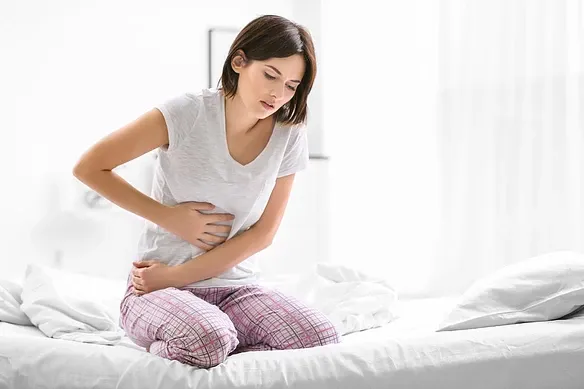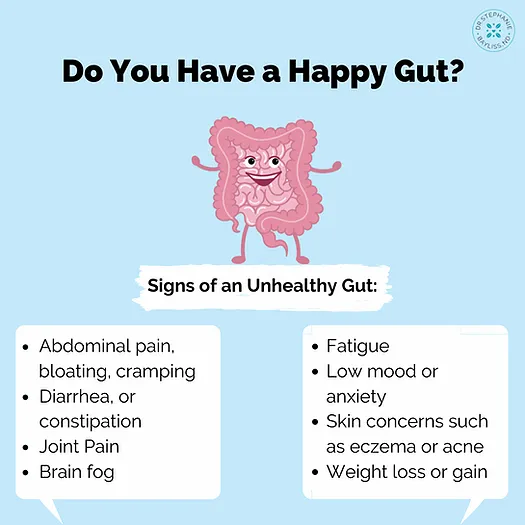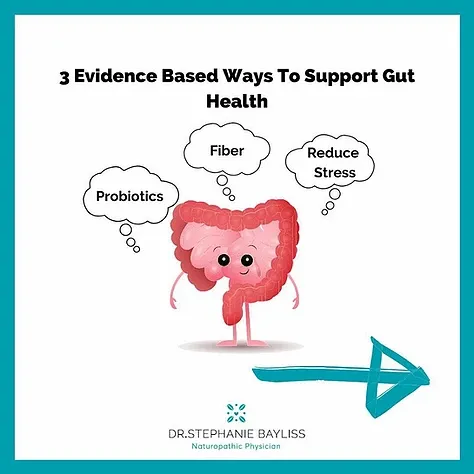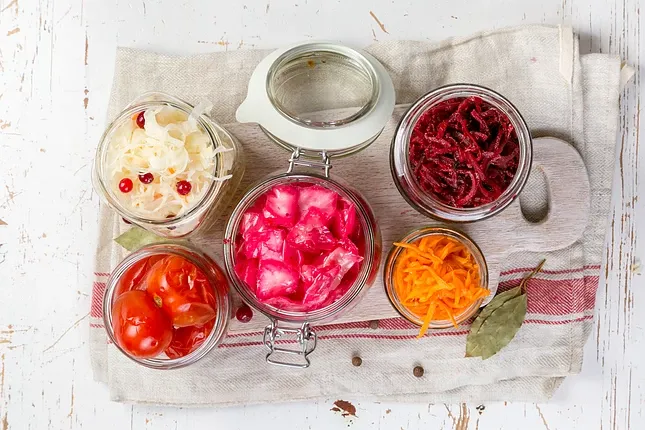⁉️What does digestion have to do with your mood⁉️
You are likely familiar with the story of when you are eating poorly, and experience digestive upset, your mood plummets.
Bowel health is foundational to our brain health. Over 90% of your body's serotonin (chemical associated with happiness) is actually produced in our gut. Over 50% of patients with IBS (irritable bowel syndrome) have depression, anxiety or sleep problems.
The microbiome (aka bacteria) in the gut affects brain function. A 2019 research study demonstrated that individuals with depression were missing two types of bacteria that were common in patients without depression.
Now you are wondering - what CAN I do about it?
Individuals who eat a Mediterranean diet and have a high consumption of fish, have lower rates of depression. It is suspected that the food groups in a Mediterranean diet positively influence our gut bacteria.
❗️1 trillion bacteria live in our digestive system (approx 4 lbs of bugs).❗️
Healthy digestion = happy hormones, improved mood, and stable energy.
Take an inventory of your digestion - happy bowels are:
⚡️Formed
⚡️Happen at least once daily
⚡️Easy to pass (AKA NO straining)
⚡️Minimal to no abdominal pain or discomfort
⚡️Minimal gas and bloating
⚡️No heartburn/indigestion
You quite literally ARE what you EAT. Being able to digest, absorb and assimilate your nutrients is foundational to your entire body's health. So, if you are not able to access those nutrients, or detox effectively, you will feel the effects.
✅Probiotics
-Probiotics as a supplement OR fermented foods (see below).
-Adding more good bacteria to our bowels can improve digestive symptoms, and also help with other things like depression/anxiety.
✅Fiber
-Increasing fiber is the best way to feed our gut bugs.
-Eat plenty of veggies, add variety, eat the rainbow.
-Average American consumes only 15 grams of fibre per day. While, the Canada food guide recommends 25 grams per day for women.
-For every 10 grams of prebiotic carbohydrates that reach the gut microbiota (e.g,. veggies), about 3 grams of additional bacteria can be grown equaling 3 trillion new gut bugs.
✅Reduce Stress
-Mindful eating - dedicate 15 distraction-free minutes to eat your meals.
-I always give the example of a drooling dog prior to eating. The dog is SUPER excited about eating, and all of their digestive juices get flowing, this helps them digest their food easier. For us, since we eat on the go and multi-task, it doesn’t give our gut a chance to get the digestive juices flowing.
FERMENTED FOODS
My #1 recommendation for improving gut health is increasing fermented foods in your diet. This is because it combines FIBER + PROBIOTICS.
Compared to taking capsules of probiotics, a cheaper, and actually much more reliable way to improve your gut bacteria is by increasing fermented foods.
Fermentation was historically a way to preserve foods prior to refrigeration. During fermentation, bacteria convert sugars/starches into alcohol or acids, and this produces lactic acid which acts as a natural preservative.
Types of Fermented Foods:
• Sauerkraut
• Kimchi
• Tempeh
• Miso
• Kefir
• Kombucha (watch for high sugar content)
If you are especially motivated - create your own. I usually recommend 1-2 tablespoons a day of sauerkraut.
Don’t stop sleuthing + experimenting until you optimize your digestion and have a happy tummy again.
References
Carlson, J. L., Erickson, J. M., Lloyd, B. B., & Slavin, J. L. (2018). Health effects and sources of prebiotic dietary fiber.Current developments in nutrition,2(3), nzy005.
Dinan, T. G., Stanton, C., Long-Smith, C., Kennedy, P., Cryan, J. F., Cowan, C. S., ... & Sanz, Y. (2019). Feeding melancholic microbes: MyNewGut recommendations on diet and mood.Clinical Nutrition,38(5), 1995-2001.
Eriksson, E. M., Andrén, K. I., Kurlberg, G. K., & Eriksson, H. T. (2015). Aspects of the non-pharmacological treatment of irritable bowel syndrome.World Journal of Gastroenterology: WJG,21(40), 11439.
Links between gut microbes and depression strengthened. Nature 566, 7 (2019). DOI: 10.1038/d41586-019-00483-5
Li, Y., Hao, Y., Fan, F., & Zhang, B. (2018). The role of microbiome in insomnia, circadian disturbance and depression.Frontiers in psychiatry,9, 669.
Wallace, C. J., & Milev, R. (2017). The effects of probiotics on depressive symptoms in humans: a systematic review.Annals of general psychiatry,16(1), 14.




